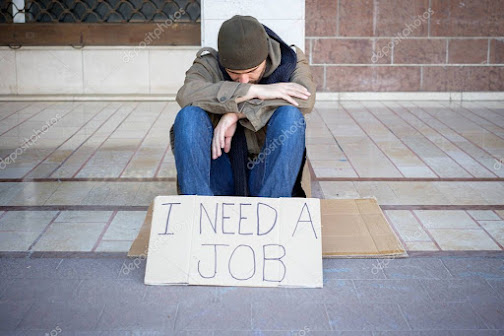The Challenge of Finding a Job in Homeless People
(Photo Credit: tommaso1979)
According to the 2023 analysis of homelessness by the U.S. Department of Housing and Urban Development, the United States had 653,104 homeless people counted on a single night in 2023- a 12% increase from 2022. Homelessness has been more complex and multifaceted than most people think. Finding a house does not alone solve the problem of homelessness. How can people remain in permanent housing without a stable job? Ending this homelessness crisis thus is not just providing temporary shelter and resources for those people experiencing homelessness. To completely break the cycle of homelessness, they need to secure the income that will allow them to afford their housing needs and stabilize their lives.
When people think about homeless people, the first image that comes to mind is often an irresponsible and dangerous individual. The negative stereotype and misconceptions about people experiencing homelessness result in many misleading assumptions. People tend to think that their experience is a result of their own choices and people would rather stay on the streets than find a job. This usually leads to the question: "Why don't they just get a job?" People raise this question without making an effort to put themselves in a homeless person's shoes. Many individuals experience homelessness for reasons that are not within their control. including loss of a job, traumatic events, and medical conditions or disabilities. Moreover, not only homeless people but also others have a hard time finding a job that can help with covering basic living expenses these days. Some people experiencing homelessness are employed, but most of them work minimum-wage jobs that are inadequate to meet their living needs. According to the National Low Income Housing Coalition, individuals who earned a full-time minimum wage salary could not afford a modest two-bedroom apartment. Many work multiple jobs and are only able to barely keep them from living on the street. The increased gap between housing costs and stagnant income only exacerbates their inability to secure stable housing.
Homeless people who are unemployed experience face more barriers when navigating and trying to gain employment. These barriers can include a lack of stable housing, transportation, or lack of necessary means to find a job. One of the prominent examples is that the job application process is challenging for homeless people because they don't have a stable home address or phone number. They also usually have little access to showers and laundry facilities and thus are unable to maintain good hygiene as well as their jobs. There are also some unseen barriers which predominantly include systemic biases and discrimination. This issue can again traced back to the misconception about people experiencing homelessness. They are seen as an incapable employee who also has some criminal backgrounds. Those barriers thus perpetuate the cycle of homelessness, and people will never escape from this homeless nightmare.
Homeless people themselves want to find the way out of this never-ending cycle the most. "Just finding a job" is not easy for them as they experience many hardships and barriers that prevent them from doing so. Stopping this crisis thus requires more extensive measures and the whole community engagement as well as government actions and laws. We as Portlanders can also take action at an individual level now by getting in touch and volunteering at nonprofit organizations, such as Community Volunteer Corps and Ground Score Association. And, we always need to approach homelessness with empathy and challenge the misconceptions that can dehumanize people experiencing homelessness and prevent effective initiatives from implementing to end this crisis. We must act now to tear down this nightmare that many individuals have been experiencing and create a better world in which people can live happily.
If you're interested in learning more about this issue and would like to get involved, here are some resources:
- https://www.portland.gov/homelessnessimpactreduction/opportunities
- https://centralcityconcern.org/
- https://entrywaytalent.org/
- https://www.projecthome.org/



Comments
Post a Comment